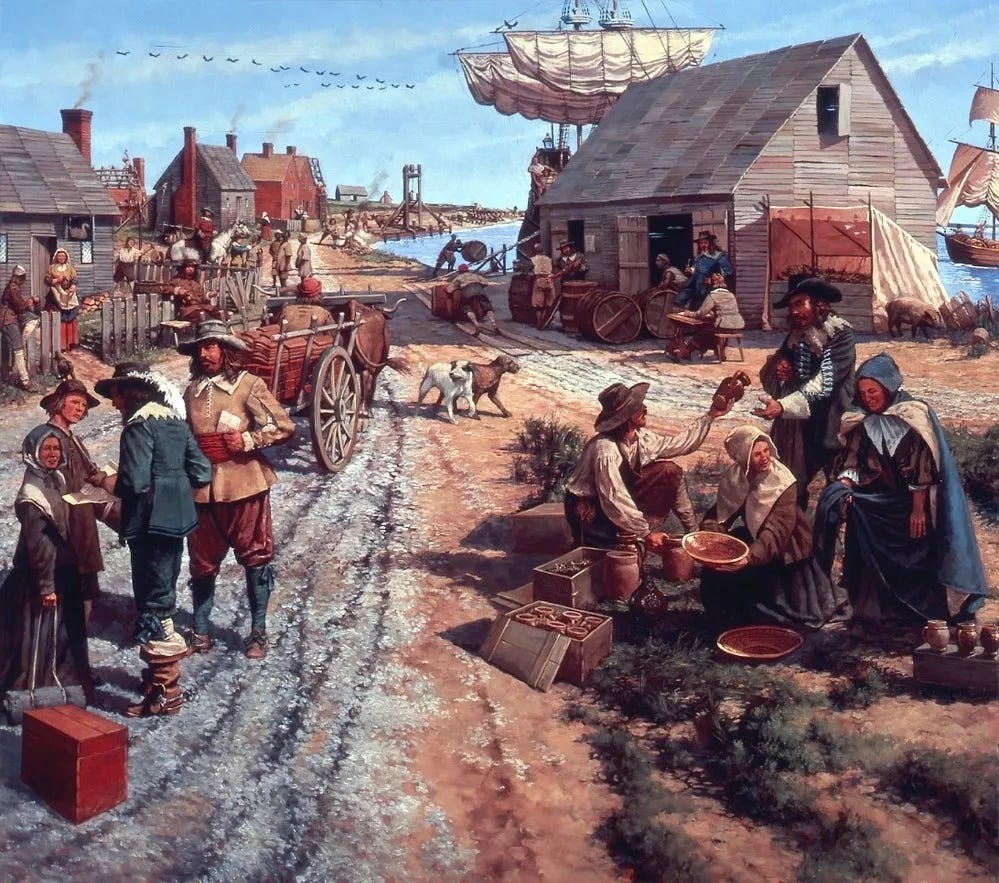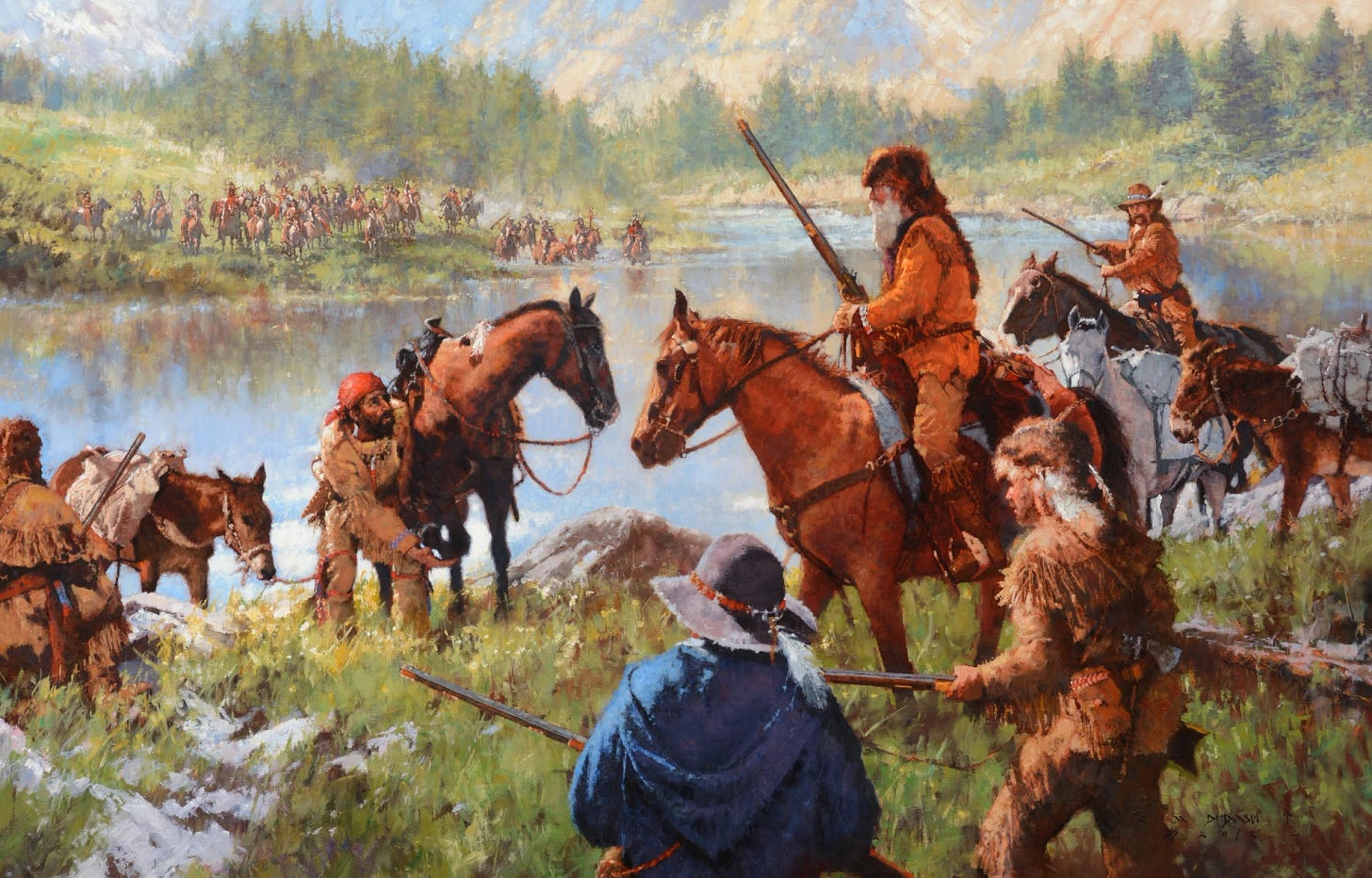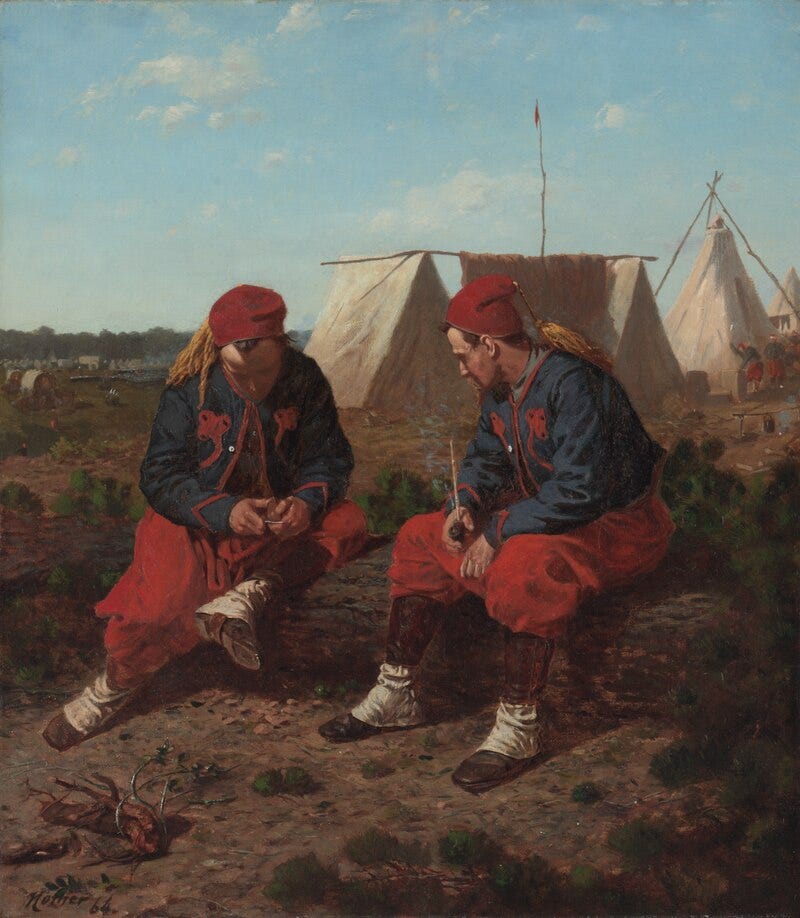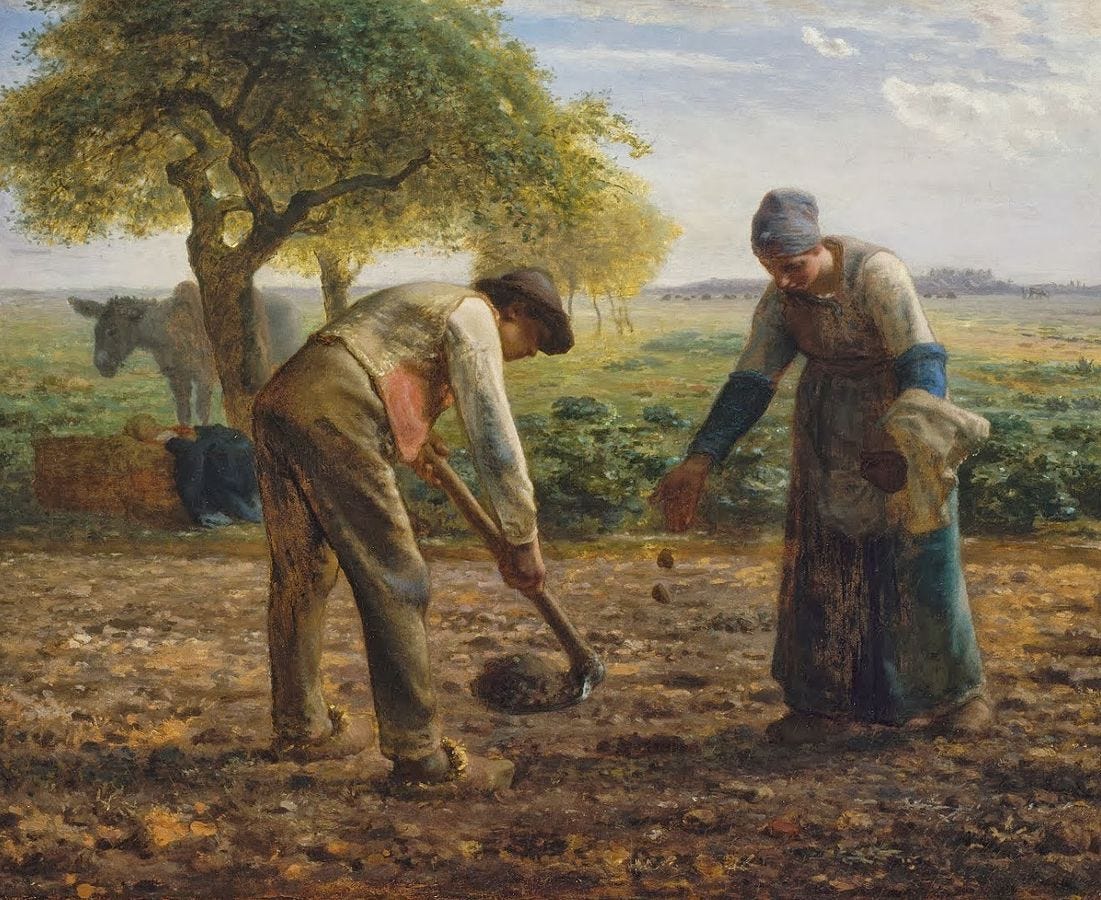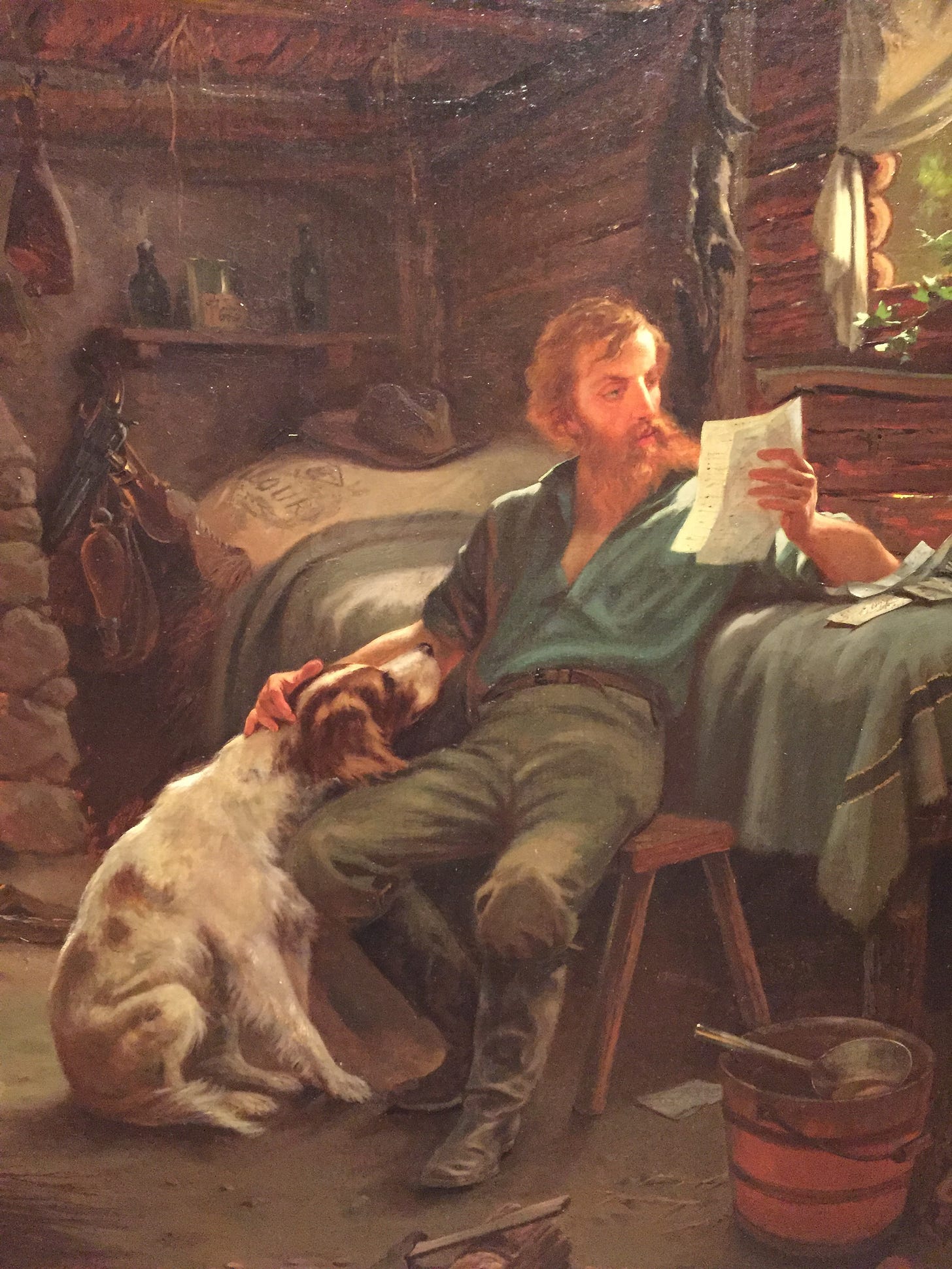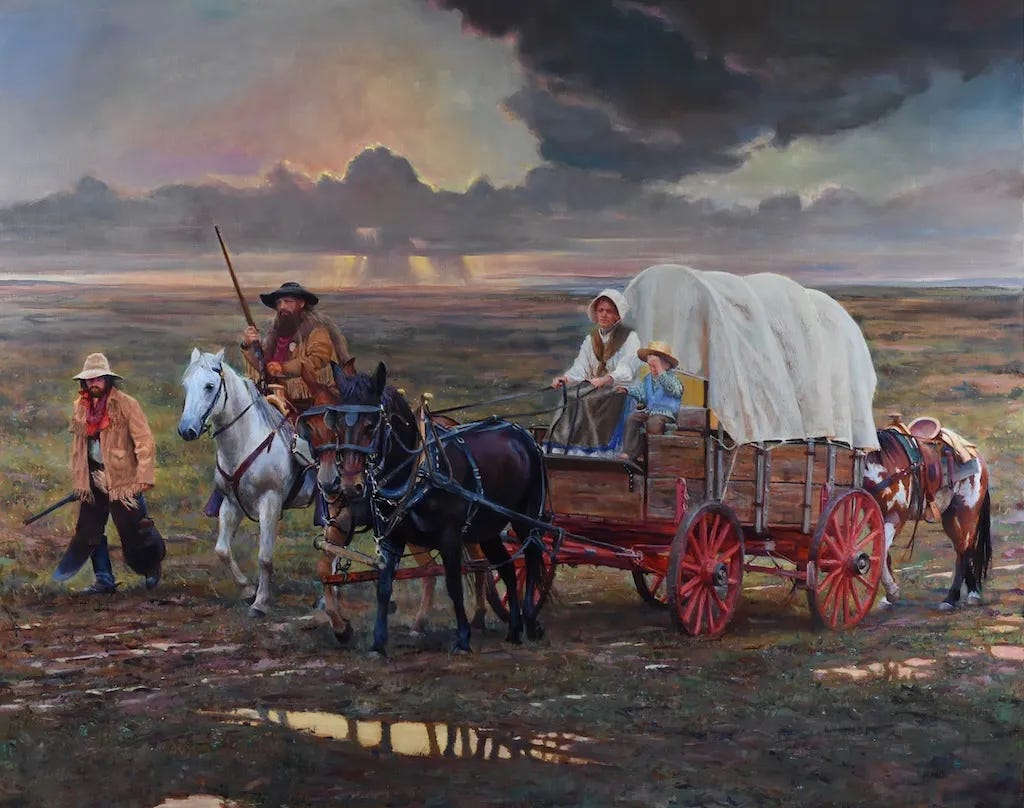The Blessed Tether Between Man and Earth
We are little more than the land we sprout from and the people we grow with, for it is all we are to die knowing.
A peculiar air of nostalgia settles within the modest gas-stop towns and communities dotted across the map of this nation. The type that beds itself in the bones of the elderly and trickles into the minds of the young. The kind that appears forsaken in the wake of an exodus of children and grandchildren, all striving to capture a minimalist, lonesome, yet stuffy dream. However, even in the gold rush of eager success, the home and soil that bore him forever anchor man, calling to him, stowed away in his unconsciousness.
Community, as understood by conventional man, serves a multifaceted purpose. It is more than rooted in altruism and beyond the mere representation of one’s colony. Its importance lies within the ties to those who walked before him, exchanging stories with elders, grasping the degree of shared wisdom, and ensuring its transmission of knowledge from himself to those after him. Traditionally, this involved passing down essential skills and customary practices that sustained the rhythm of communal life, thereby enlivening one’s family thereafter. Moreover, transferring experiences and activities was a celebration of one’s heritage and sense of belonging. Today, the purpose of community has slipped into the backdrop of most aspiring mavericks. Loyalties are increasingly realigned, latching on to causes that betray their nature, more than often forcing an allegiance to neither family nor ancestral ties. Thus, ‘community’ should be distinguished from ‘collective.’
A collective tends to enforce a strict, uniform function, bordering on authoritative and overshadowing individualism; on the other hand, a community nurtures individuality within a shared context, fostering an ebb and flow of mutual values that enrich each life.
This complex dance between individuality and collective identity has exhibited itself throughout America.
America has long been a nation deeply rooted in tribalism, a trait that endures even as the leaves of its history are scattered and replanted in new soils. We forge indelible ties to our towns, schools, football teams, and mascots, and our stadiums resonate with rallying cries reminiscent of war chants. This fervor, this communal essence, mirrors the spirit of Native Americans more closely than that of our distant European ancestors, those who more than naturally embraced individuality compared to our national identity. As psychiatrist and psychoanalyst Carl Jung observed quite well: “The American presents a strange picture: a European with Negro behavior and an Indian soul.” (Mind and Earth; The collected works of C. G. Jung: Vol. 10. Civilization in Transition (2nd ed., pp. 29–49).). Such an observation does not pass without interrogation into the American consciousness and unconsciousness, though it is relative to American culture, as witnessed in the early twentieth century.
Despite the loud devotion to certain clubs and teams, a deeper, more personal allegiance remained to the family unit. For the plainsman, this meant a dedication to the soil and crop he sprouted from as a child, and for the mother, it meant undivided attention and upkeep to rearing her children into adults who would return the same care in her elderly years. Each role complemented the others, forming a community within the home that held firm under trial.
However, as bright-eyed scholars venture away from home, they abandon the spirit of their traditional kinship in hopes of finding such a parallel elsewhere. In the mind of the intellectual, “making his way” suits him rather than the words of those before him. Although this is a foolhardy dive into a world he may not know, it is the same dive our forefathers made when traversing unknown valleys in search of treasure and property. They sought, without warning, a motherland of opportunity. Still, while such comparisons may hold, the nature of ‘opportunity’ has dramatically transformed in our era. The once ‘land of opportunity’ has evolved into a ‘land of attention’ within the academic sphere, where the pursuit of recognition often outweighs the values of perseverance and loyalty to one’s heritage.
For both young men and women, untethered in their sail through the waves of prestige, the sense of belonging is practically imperative, steering their ship into the cinch of collectivism. In the hallowed halls of universities, a monochrome fabric of scholarly pursuits overshadows the deep tapestry of one’s legacy and stories. In that circle, staunch uniformity drives one to stifle any reminiscence of their hometown, the roots they bud from, and the words of old that cautioned them affectionately. For the man, the persistent aggregate surrounding him blinds his vision towards the notion of preserving orthodox family values, redirecting his aim towards organizational achievements. This misdirection amplifies tenfold for women, augmenting the already distinct dichotomy between the sexes, juggling both in an erratic and uneven situation:
Corporate men working under a matriarchal state. It goes without question that this imbalance leads to subtle, or not-so-subtle, resentment between the two.
The relentless outward focus on the world detracts from the vital process of self-reflection and personal growth, leading to strained relationships and a diminished sense of self. Such a challenge leads to ignoring the necessity for improvement, creating animosity or a total indifference towards fostering meaningful connections. Consequently, this dynamic has aggravated tensions between the sexes, eroding the foundation for mutual respect and partnership necessary for building strong family units and, by extension, resilient communities. Although it is never only academia that contributes to a lack of conscientiousness around such topics within a person, it is a worthwhile inspection.
“No reversal is in sight.”
For more men today, the harkening of the university halls is becoming a bleak and distant allure. The Wall Street Journal reported in 2021 that “at the close of the 2020–21 academic year, women made up 59.5% of college students, an all-time high, and men 40.5%, according to enrollment data from the National Student Clearinghouse.” (Belkin, 2021).
It cautioned that “no reversal is in sight” as women continue to increase their lead over men in college applications.
More men are avoiding uninviting institutions, corporations, virtue-signaling organizations, and collectivist missions in search of a foundation that resonates with the nature of man in his fellowship — applying the elbow grease they grew up seeing accomplish many tasks. The thoughts that floated, adrift and between the pines, were put into action rather than stuck in rumination and idleness; he was creative when needed. Man, unanchored amongst the collective and without a familial community, is placed in jeopardy, as we witness in young men today.
By re-engaging with their environment's tangible and immediate aspects, they not only reignite the spark of innovation and creativity but also foster a sense of belonging and purpose that has eroded in the face of modern disconnection and expensive, professional pursuits. This realization resonates with a Jungian perspective on understanding one's 'inherited psyche'—the profound, often unacknowledged layers of the collective unconscious and its archetypes that rumble beneath our societal fabric. Jung suggested that failing to integrate these foundational aspects can lead to continual inner turmoil. Therefore, re-engaging in hands-on work and community involvement not only fosters a renewal of self-worth and interdependence but also aligns with Jung's advocacy for integrating the unconscious into conscious life. However, a deeper exploration of Jung's theories on individuation and the American psyche warrants a more extensive essay and analysis. Nevertheless, when individuals actively contribute to their surroundings, it lays the groundwork for stronger relationships, reliable individuals, and more cohesive societies.
As we invest our skills and energies back into those communities we grew from, we continue to prove that the path to fulfillment lies not in the abstraction of distant ideals but in the concrete reality of homegrown effort and communal bonds.
We are little more than the land we sprout from and the people we grow with, for it is all we are to die knowing.




